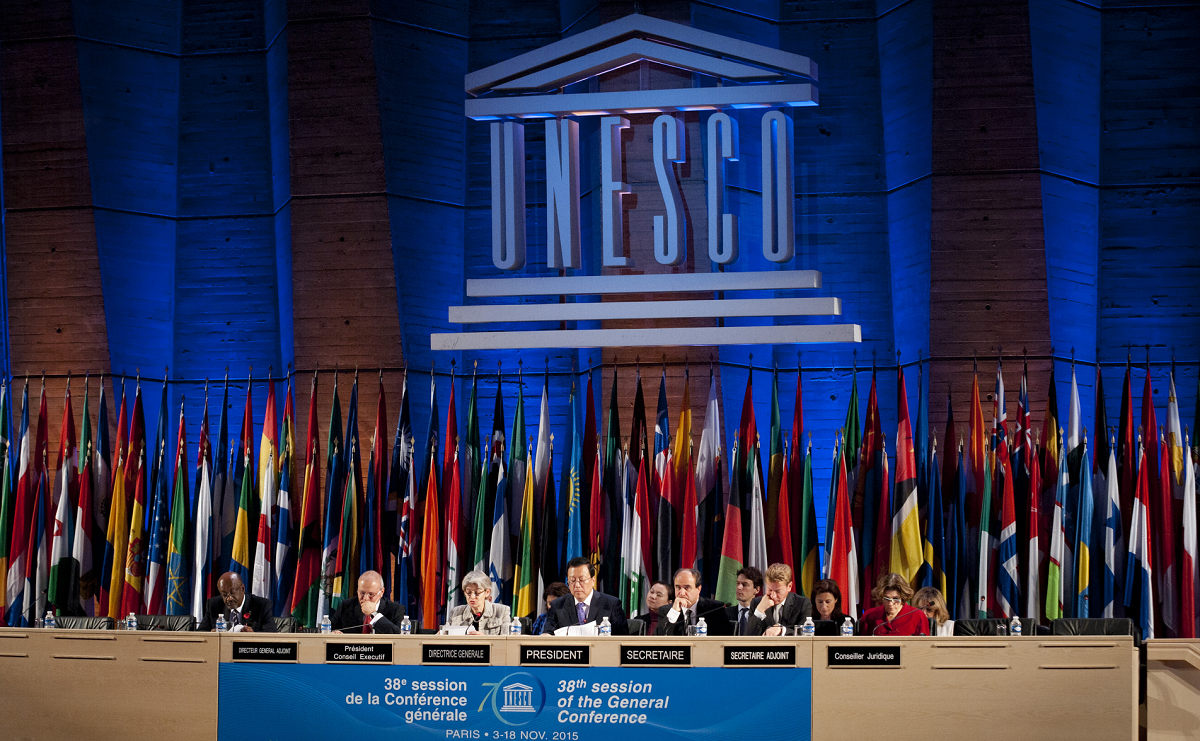联合国教科文组织
United Nations Educational, Scientific and Cultural Organization
组织领域:教育与科技 总部:Paris, France
组织性质:政府间 是否有驻华办事处:是
详细介绍

Mission
UNESCO is responsible for coordinating international cooperation in education, science, culture and communication. It strengthens the ties between nations and societies, and mobilizes the wider public so that each child and citizen:
? has access to quality education; a basic human right and an indispensable prerequisite for sustainable development;
? may grow and live in a cultural environment rich in diversity and dialogue, where heritage serves as a bridge between generations and peoples;
? can fully benefit from scientific advances;
? and can enjoy full freedom of expression; the basis of democracy, development and human dignity.
UNESCO's messages are of increasing importance today, in a globalized world where interconnections and diversity must serve as opportunities to build peace in the minds of men and women.
Introduction
In 1945, UNESCO was created in order to respond to the firm belief of nations, forged by two world wars in less than a generation, that political and economic agreements are not enough to build a lasting peace. Peace must be established on the basis of humanity’s moral and intellectual solidarity.
UNESCO strives to build networks among nations that enable this kind of solidarity, by:
Mobilizing for education: so that every child, boy or girl, has access to quality education as a fundamental human right and as a prerequisite for human development.
Building intercultural understanding: through protection of heritage and support for cultural diversity. UNESCO created the idea of World Heritage to protect sites of outstanding universal value.
Pursuing scientific cooperation: such as early warning systems for tsunamis or trans-boundary water management agreements, to strengthen ties between nations and societies.
Protecting freedom of expression: an essential condition for democracy, development and human dignity.
Today, UNESCO's message has never been more important. We must create holistic policies that are capable of addressing the social, environmental and economic dimensions of sustainable development. This new thinking on sustainable development reaffirms the founding principles of the Organization and enhances its role:
In a globalized world with interconnected societies, intercultural dialogue is vital if we are to live together while acknowledging our diversity.
In an uncertain world, the future of nations depends not only on their economic capital or natural resources, but on their collective ability to understand and anticipate changes in the environment - through education, scientific research and the sharing of knowledge.
In an unstable world - marked by fledgling democratic movements, the emergence of new economic powers and societies weakened by multiple stress factors – the educational, scientific and cultural fabric of societies – along with respect for fundamental rights - guarantees their resilience and stability.
In a connected world - with the emergence of the creative economy and knowledge societies, along with the dominance of the Internet, the full participation of everyone in the new global public space is a prerequisite for peace and development.
UNESCO is known as the 'intellectual' agency of the United Nations. At a time when the world is looking for new ways to build peace and sustainable development, people must rely on the power of intelligence to innovate, expand their horizons and sustain the hope of a new humanism. UNESCO exists to bring this creative intelligence to life; for it is in the minds of men and women that the defences of peace and the conditions for sustainable development must be built.